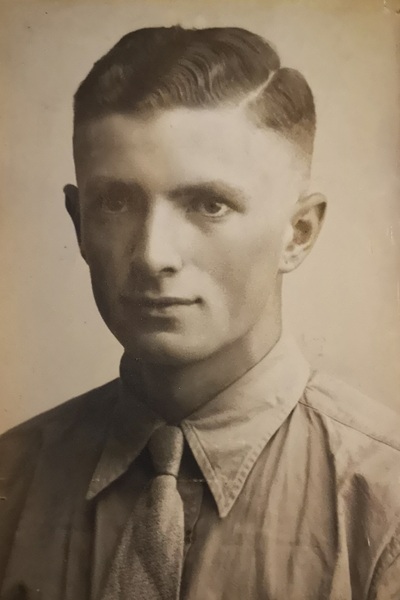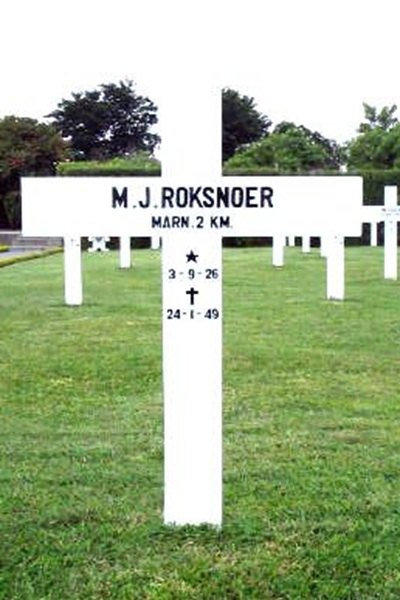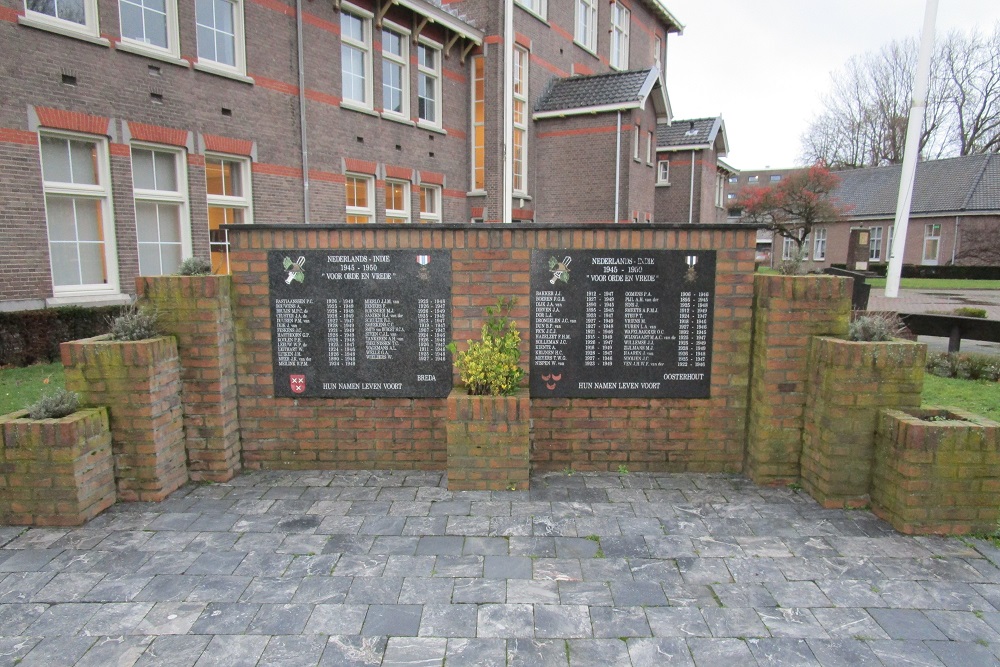Roksnoer, Matheus Johannes
- Date of birth:
- September 3rd, 1926 (Breda/North Brabant, Netherlands)
- Date of death:
- January 24th, 1949 (Babat/Java, Dutch Indies)
- Buried on:
- Dutch War Cemetery Kembang Kuning
Grave: C151. - Nationality:
- Dutch
Biography
Marine II class z/m Marine Brigade
Matheus was born on 3 September 1926 in Breda. After the end of World War II in the Netherlands, he enlisted in the Royal Netherlands Navy. He left for training in the United States, where he was assigned to the newly formed Marine Brigade at Camp Davis in September 1945.
Two days after the Japanese surrender on 15 August 1945, Soekarno and Mohammed Hatta declared Indonesia's independence. When the British and Dutch subsequently appear to make preparations to restore the aged colonial authority, the chaotic period of the Bersiap (‘be prepared’) begins, in which foreigners – Japanese, Chinese and British – and European and Indian Dutch people declared enemies become victims of violence and persecution. To fulfil his military service, Matheus was sent with the Marine Brigade to the Dutch East Indies to help restore peace and Dutch authority. In December 1945, after several months of training, he travelled to the East on the Bloemfontein.
However, Admiral Lord Mountbatten, commander-in-chief of the Allied South East Asia Command (SEAC), issued a landing ban for Dutch troops on Java and Sumatra with effect from 2 November 1945, much to the anger of the Dutch military. With this ban, Mountbatten wanted to prevent the situation from escalating into a large-scale war in which British troops could become embroiled. With the exception of a small group of marines who were allowed to disembark, the Dutch forces withdrew to Malacca, awaiting the lifting of the landing ban.
In March 1946, the marines were finally allowed to land on Java. During that first year, Matheus was deployed in various large-scale and successful operations in the east of the island. During the First Police Action from 21 July to 4 August 1947, the marines took part in the landing at Pasir-Poetih and the capture of Malang.
By the end of the Action, the island of Madura was also occupied. After considerable reductions in personnel, compensated for by the deployment of conscripted sea militia, the marines also played a crucial role in the Second Police Action from 19 December 1948 to 5 January 1949.
However, the successful landing at Glondong was soon followed by a long ordeal of roadblocks, blown-up bridges and impassable roads. Even after the end of the Action, the area guarded by the marines in East Java was frequently the scene of ambushes and guerrilla attacks by the revolutionaries.
On 24 January 1949, Matheus was killed in military action in Babat, northwest of Surabaya. According to tradition, he and his comrade Tiemen Cornelis Rozeboom drove over a roadside bomb. He was 22 years old and found his final resting place at the Dutch military cemetery Kembang Kuning in Surabaya.
Do you have more information about this person? Inform us!




